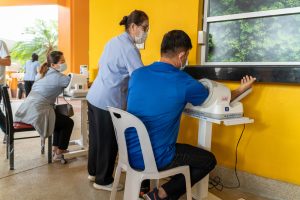Polycystic Ovarian Syndrome (PCOS) shows a higher likelihood in South Asian countries, suggesting a distinct difference between other ethnicities.
The Congress of Asia Pacific Initiative on Reproduction (ASPIRE) recently concluded a discussion on the pervasiveness of PCOS in South Asian countries including Afghanistan, Bangladesh, Nepal, and Sri Lanka among many others. These countries exhibited a high percentage of women being diagnosed with PCOS. With statistics showing up to 3.5% of South Asian women having PCOS compared to the 1.1% to 1.9% prevalence in other countries.
Risk Factors Affecting the Increase of PCOS in South Asian Women
According to Imari Patel from the Women’s Health Education Program at Drexel University, College of Medicine, genetic factors greatly impact the likelihood of PCOS. Mutations in the DNA, possibly due to external stress or heritable polymorphisms in VEGF, can be a significant risk factor for PCOS in South Asian women.
Complications of PCOS
PCOS may increase male hormones and the certain changes in the female body are just the initial effects of PCOS. It can also affect different body systems in drastic ways.
Reproductive system:
- infertility
- Endometrial cancer
Metabolic system:
- Diabetes
- Obesity
- Heart diseases
Physical:
- Hirsutism
- Acne
- Male Pattern Hair loss
Psychological:
- anxiety
- Depression
Among the listed complications, there is an increased risk of having diabetes and liver disease and an increase of a stroke or a heart attack occurring in South Asian women.
Importance of early diagnosis
The discussion about PCOS in the ASPIRE congress included new guidelines to diagnose PCOS. They first pointed out that PCOS is not an isolated reproductive condition but an endocrine disorder that affects the reproductive, cardiometabolic, and physiological aspects of the body.
The importance of early diagnosis was emphasised by the director of Monash University’s National Health and Medical Research Council Center for Research Excellence in PCOS. The guidelines pose an urgency to consult a doctor when the following symptoms are observed:
In Adolescence: the presence of even one symptom is considered a risk that should be assessed. A reassessment using an ultrasound or an anti-Mullerian hormone (AMH) test is necessary when the patient reaches the age of 20.
Presence of Cardiovascular Disease: Lipid profiling is now a requirement for the diagnosis of PCOS for women of all ages to check for possible cardiovascular disease. Researchers included the presence of cardiovascular diseases as a core feature of PCOS.
Assessment of the Medical conditions of Male first-degree relatives: Relatives such as fathers, brothers, or offspring that have type 2 diabetes and hypertension have a connection to the increased risk of metabolic syndrome or dyslipidemia in PCOS patients.
Doctor’s Advice
The condition affects women’s health in different ways, including its impact on cardiometabolism. Dr. Maria Sunny R. Duran, an OBGYN doctor practising for 49 years, advises weight management for people affected by the condition. She stated that having a balanced and healthy diet together with exercise can reduce the severity of PCOS complications. In addition, she wanted to stress out following the proper medication and prescription for each patient.
Awareness
Polycystic Ovarian Syndrome has become a prevalent issue in women that requires addressing. It affected a lot of women taking a toll on them not only physically but also mentally. Therefore, awareness about the importance of early diagnosis can help a lot of women, preventing the severity of what could be their journey ahead.
Learn More about PCOS…
Why Spearmint Tea is the Buzz for Hormonal Regulation & PCOS













